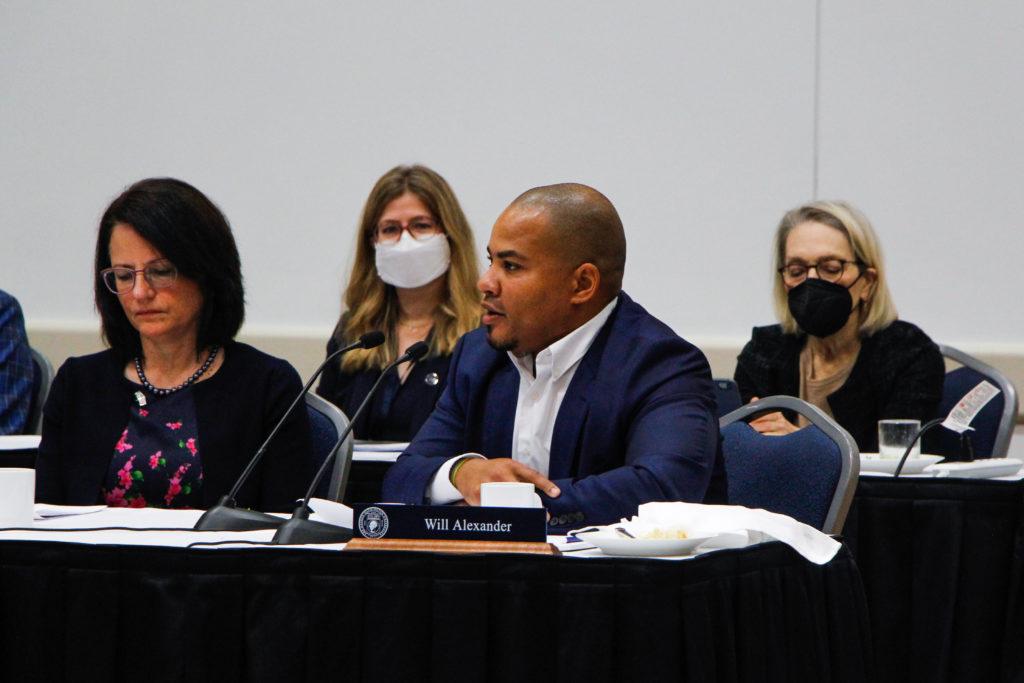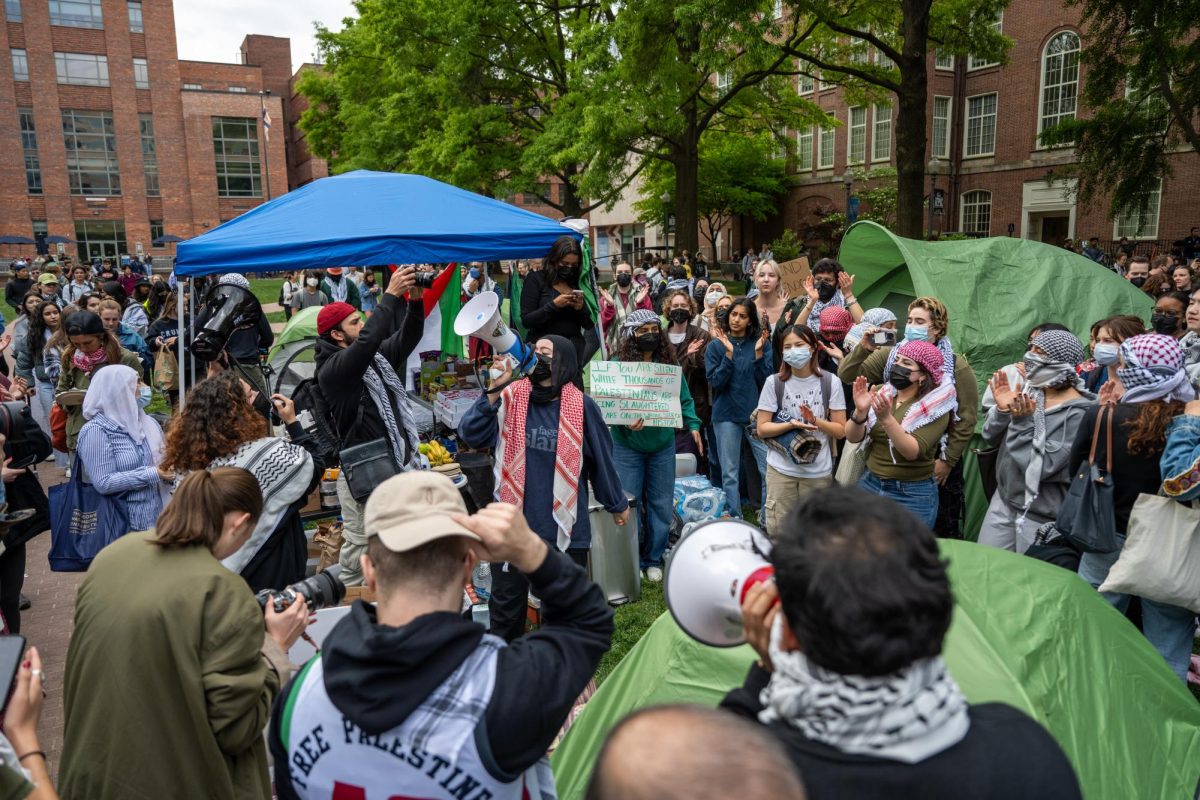More than 20 years since enrolling at GW, newly minted Alumni Association President Will Alexander III said he’s not going to “get pushed around” when it comes to being an advocate for community members and student engagement on campus.
Alexander – who was branded as “GW’s poster boy” in the early 2000s by former University President Stephen Joel Trachtenberg and fellow students – is taking over for the second half of former Alumni Association President Christine Brown-Quinn’s two-year term after they tied during the association’s presidential election. He said he wants to help student organizations on campus work directly with the alumni community and use his position to advocate for students and faculty with administrators.
The Board of Trustees confirmed Alexander as GWAA president in May, and he officially took over from Brown-Quinn July 1. Alexander said the GWAA presidential term is supposed to be two years long, but he and Brown-Quinn decided to share power and split the term into two instead of holding a runoff election after they tied in last year’s election.
Alexander first came to GW under the Stephen Joel Trachtenberg Scholarship – which provides about 10 D.C.-based students with a fully-funded education at GW each year – after graduating in 2000 from the School Without Walls High School, located on GW’s campus. He earned a bachelor’s in mechanical engineering in 2004 and a master’s in business administration in 2006 before serving as the Engineer Alumni Association’s president from 2011 to 2013 and sitting on the GWAA executive committee since its inception in 2019.
“Along the way, because a lot of my education was funded through scholarship and the donation and contributions of benefactors, I’ve always felt it was important to be an active participant in the University community,” he said. “Whether it’s being involved in things on campus when I was a student and then when I graduated being involved in volunteer activity.”
He said he will focus on collaborating with students and helping administrators consult with alumni leaders, many of whom have been part of the University’s community longer than leaders of the school. He said he feels drawn to these priorities since he is more likely to accomplish them during the shorter, one-year term without any longer-term agenda spread across a two-year presidency.
“I looked at how long I have to serve and the time horizon of how long things can take, and I want to focus on things where we can be impactful and timely,” he said.
Alexander said one of his goals is to help student organizations with fundraising and secure alumni and expert speakers for student events. He said requirements like paid room reservations for student-run events can “hamstring” student organizations, especially when they don’t have the same fundraising avenues as alumni or academic programs.
“There are functional, process-related barriers that are in the way of being able to do just the simple act of bringing people together for a common cause,” he said.
Alexander spent the first few months of his term meeting with senior administrators to discuss the University’s and GWAA’s agenda for the next academic year. He said some officials have been willing to “explore” his ideas to open more financial resources to the student and alumni communities.
Alexander said his role on the presidential search committee – which officials formed in April – will also help him influence long-term change at the University. He said while on the committee, he has learned how major administrative searches work and has questioned their structure, like limiting applicants to those who hold a Ph.D.
Six of GW’s 15 presidents since the turn of the 19th century have had a Ph.D., with the remaining nine holding another equivalent doctorate, legal or honorary degree.
“I am probably the walking embodiment of rejecting the notion of ‘This is how it’s always been done – okay, well then keep doing it that way,’” he said. “I want to be able to go somewhere else and look at being able to do things differently. That’s kind of what I personally bring to that table, I’m there to contribute not to disrupt. But I’ve never been a shrinking violet, and I’ve always felt free to express my opinion.”
He said although he never participated in a presidential search, he can pose questions to administrators to represent some of the interests of – not only alumni – but students and faculty based on conversations he’s had with campus leaders.
“Being willing to have conversations like that and challenge notions I think is an important and healthy part of any process,” he said.







